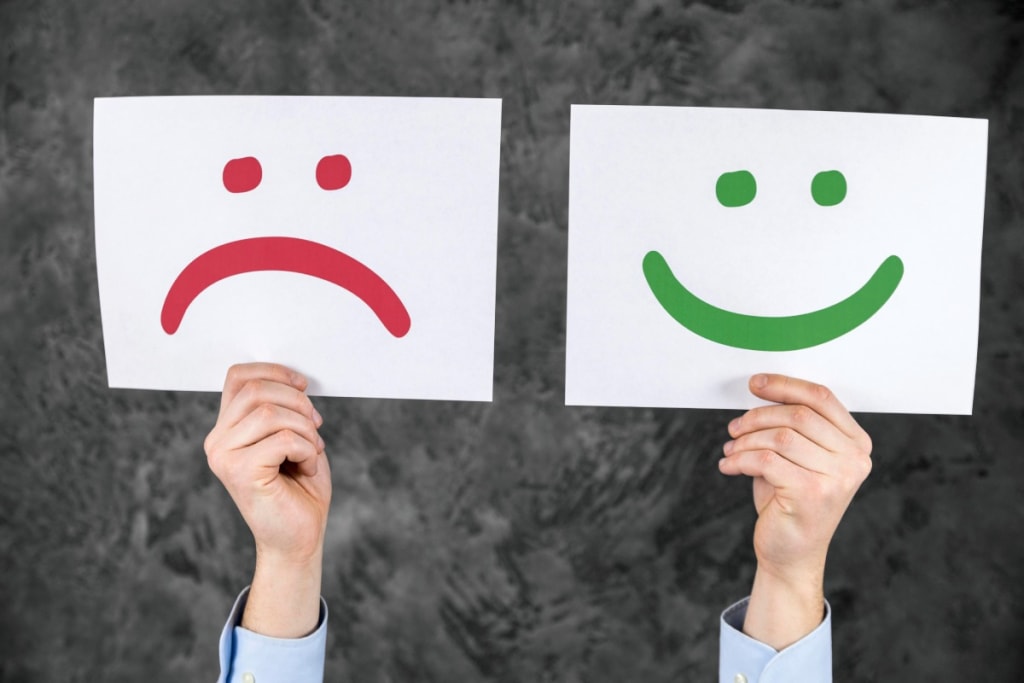Positive psychology versus Toxic positivity
However, due to the pervasive influence of social media, positive psychology is often misrepresented as toxic positivity!

In our last blog, we highlighted the key concepts and practices of positive psychology. However, due to the pervasive influence of social media, positive psychology is often misrepresented as toxic positivity! No wonder there is a hesitance at the mention of positive psychology (even by some in the field of psychology! Simply because we know how easily it is misinterpreted!).
Toxic positivity is a term used to describe the overemphasis on positive thinking to the extent that it dismisses or invalidates valid negative emotions. Positive psychology, on the other hand, is a legitimate branch of psychology that focuses on enhancing well-being, positive emotions, and strengths.
Positive psychology encourages a balanced approach, acknowledging both positive and negative emotions, and aims to improve overall life satisfaction. It doesn’t promote the suppression of negative feelings but rather emphasizes understanding and addressing them constructively.
Toxic Positivity: Balancing Positivity with Authenticity
While positive psychology seeks to enhance well-being through a focus on positive emotions and strengths, toxic positivity refers to an unhealthy overemphasis on maintaining a positive mindset, often at the expense of acknowledging and processing genuine negative emotions.
Key Characteristics of Toxic Positivity:
Invalidation of Negative Emotions:
Toxic positivity involves dismissing or downplaying negative emotions. Phrases like “just be positive” or “look on the bright side” may unintentionally invalidate someone’s authentic feelings.
Suppressing Authentic Emotions:
Individuals may feel pressured to hide or suppress genuine emotions to conform to an overly optimistic narrative. This suppression can lead to increased stress and inner conflict.
Failure to Address Real Issues:
Ignoring or glossing over real challenges without addressing them can hinder personal growth and problem-solving. Positive psychology, in contrast, encourages facing challenges while maintaining a positive outlook.
Balancing Positivity and Authenticity:
Acknowledging Negative Emotions:
It’s crucial to recognize and validate negative emotions. They are a natural part of the human experience and provide valuable insights into our needs and concerns.
Encouraging Healthy Expression:
Rather than suppressing negative emotions, positive psychology supports finding constructive ways to express and process them. This might include talking to a friend, practicing mindfulness, or seeking professional support.
Realistic Optimism:
Positive psychology promotes realistic optimism, which involves acknowledging challenges while maintaining confidence in one’s ability to overcome them. It’s a balanced approach that fosters resilience.
Winding Up:
In summary, while positive psychology aims to enhance well-being, it emphasizes the importance of acknowledging and addressing both positive and negative emotions. Toxic positivity, in contrast, involves an excessive focus on positive thinking that may hinder authentic emotional expression and growth. Striking a balance between positivity and authenticity is key to fostering genuine well-being.
– Urveez Kakalia.
Its impeccable how far you’ve come yourself, Walk in… to explore how far we can go together.
ImPerfect is the Best Counselling and Psychotherapy practice in Mumbai, driven towards facilitating my client’s journey toward being accountable for the betterment of their own mental health.
Vision
To provide the best counselling and psychotherapy in Mumbai and across the globe through online therapy, using direct problem-focused, solution-driven approaches to increase client autonomy, independence and self-reliance in improving their mental health in relatively short periods of time.
Our approach
We use an empathetic, collaborative approach in understanding the client’s goals and aspirations of therapy. In therapy, the creation of a safe non-judgmental environment benefits the exploration of your true self and discover what path you wish to take. You, as the client have the right to have the information regarding the qualifications, training and experience of your therapist. It is your responsibility to seek out this information from them.
I, Urveez Kakalia adhere to the Rational Emotive Behaviour Therapy framework while keeping a flexible approach to integrating other therapies. I do not put up the statistics or the most prevalent problems people face, or what I see most often. I believe that each problem or concern is as unique as the individual that arrives at my clinic.
About the Creator
iDigitize Infotech LLP
We at iDigitize, elevate Brands with impactful digital marketing experiences & web development services. From developing your web presence to conveying your brand’s story, we align design & development with effective strategies






Comments
iDigitize Infotech LLP is not accepting comments at the moment
Want to show your support? Send them a one-off tip.